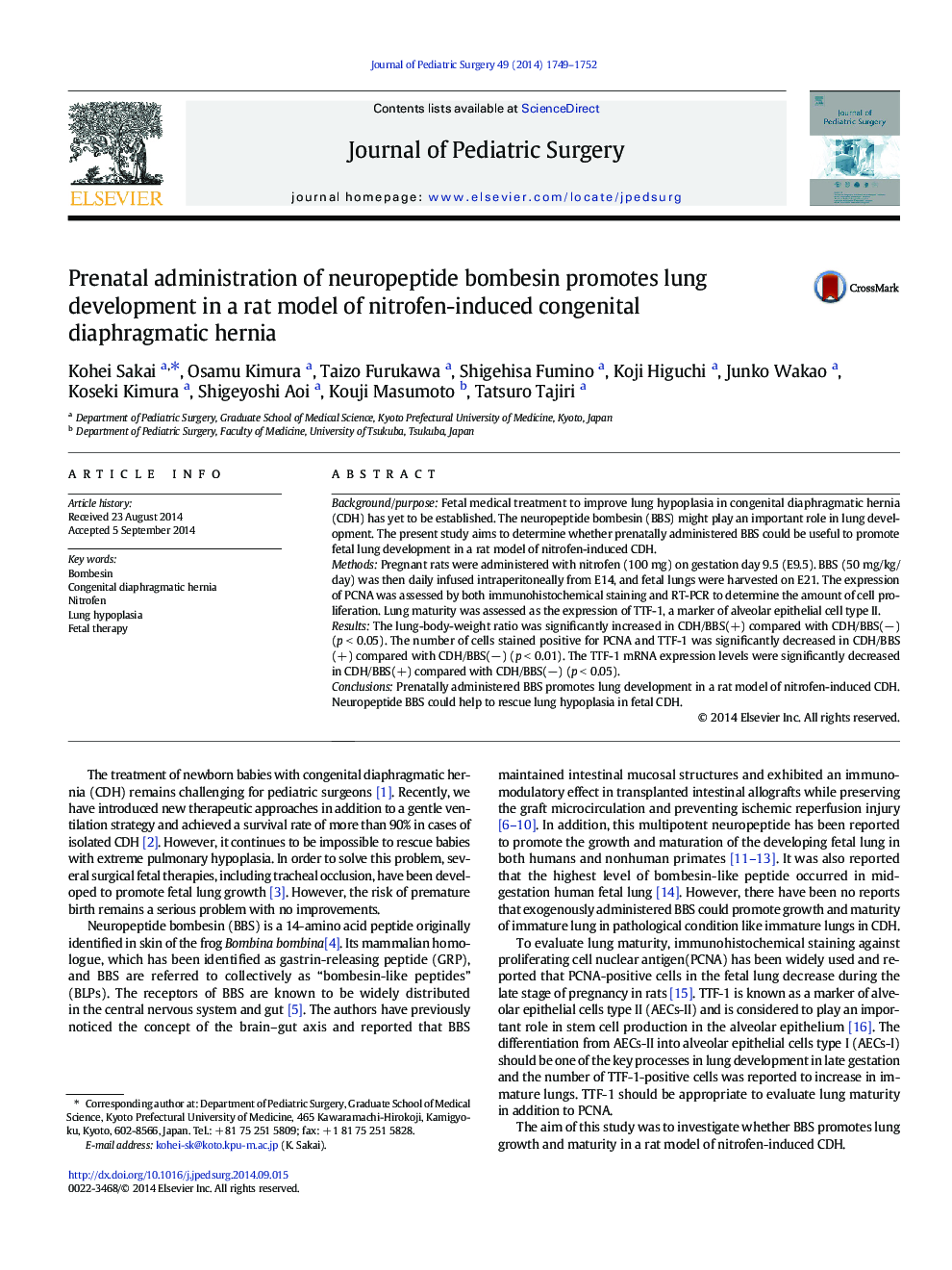| Article ID | Journal | Published Year | Pages | File Type |
|---|---|---|---|---|
| 4155583 | Journal of Pediatric Surgery | 2014 | 4 Pages |
Background/purposeFetal medical treatment to improve lung hypoplasia in congenital diaphragmatic hernia (CDH) has yet to be established. The neuropeptide bombesin (BBS) might play an important role in lung development. The present study aims to determine whether prenatally administered BBS could be useful to promote fetal lung development in a rat model of nitrofen-induced CDH.MethodsPregnant rats were administered with nitrofen (100 mg) on gestation day 9.5 (E9.5). BBS (50 mg/kg/day) was then daily infused intraperitoneally from E14, and fetal lungs were harvested on E21. The expression of PCNA was assessed by both immunohistochemical staining and RT-PCR to determine the amount of cell proliferation. Lung maturity was assessed as the expression of TTF-1, a marker of alveolar epithelial cell type II.ResultsThe lung-body-weight ratio was significantly increased in CDH/BBS(+) compared with CDH/BBS(−) (p < 0.05). The number of cells stained positive for PCNA and TTF-1 was significantly decreased in CDH/BBS(+) compared with CDH/BBS(−) (p < 0.01). The TTF-1 mRNA expression levels were significantly decreased in CDH/BBS(+) compared with CDH/BBS(−) (p < 0.05).ConclusionsPrenatally administered BBS promotes lung development in a rat model of nitrofen-induced CDH. Neuropeptide BBS could help to rescue lung hypoplasia in fetal CDH.
